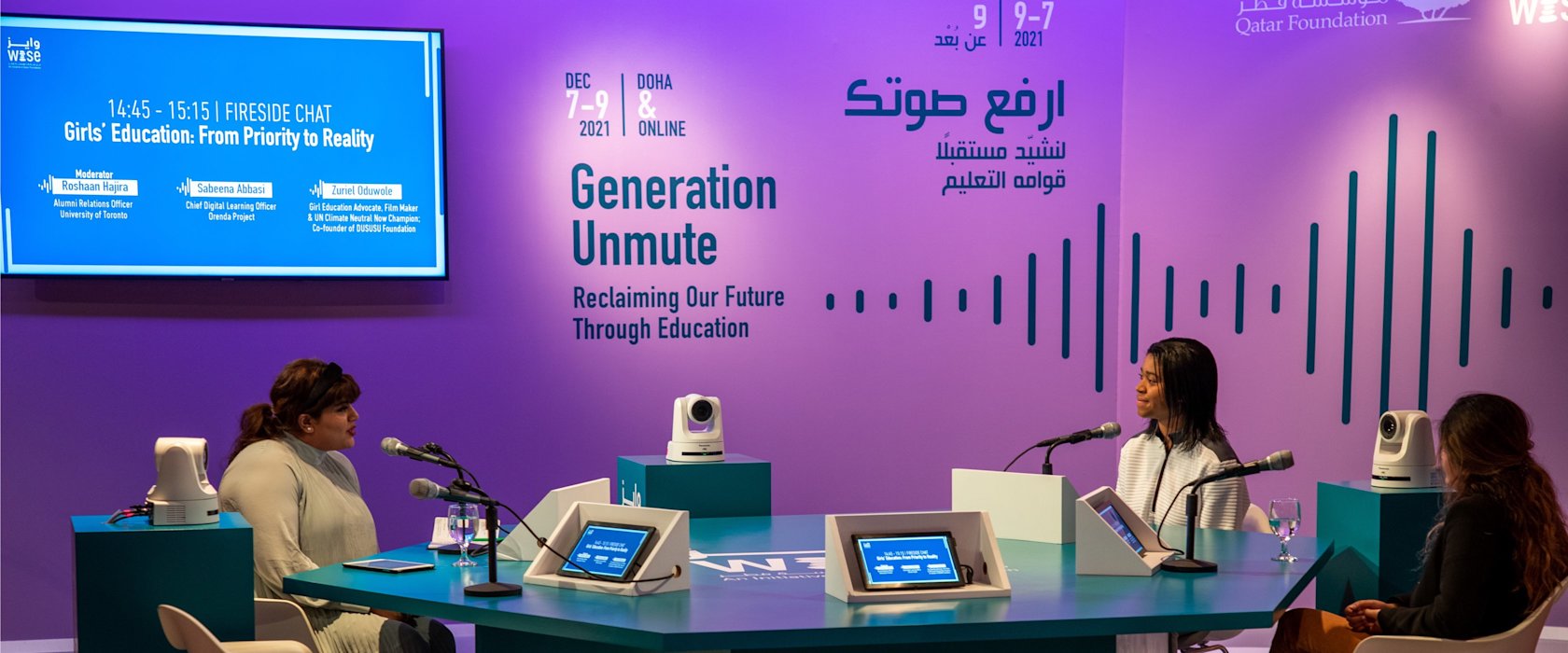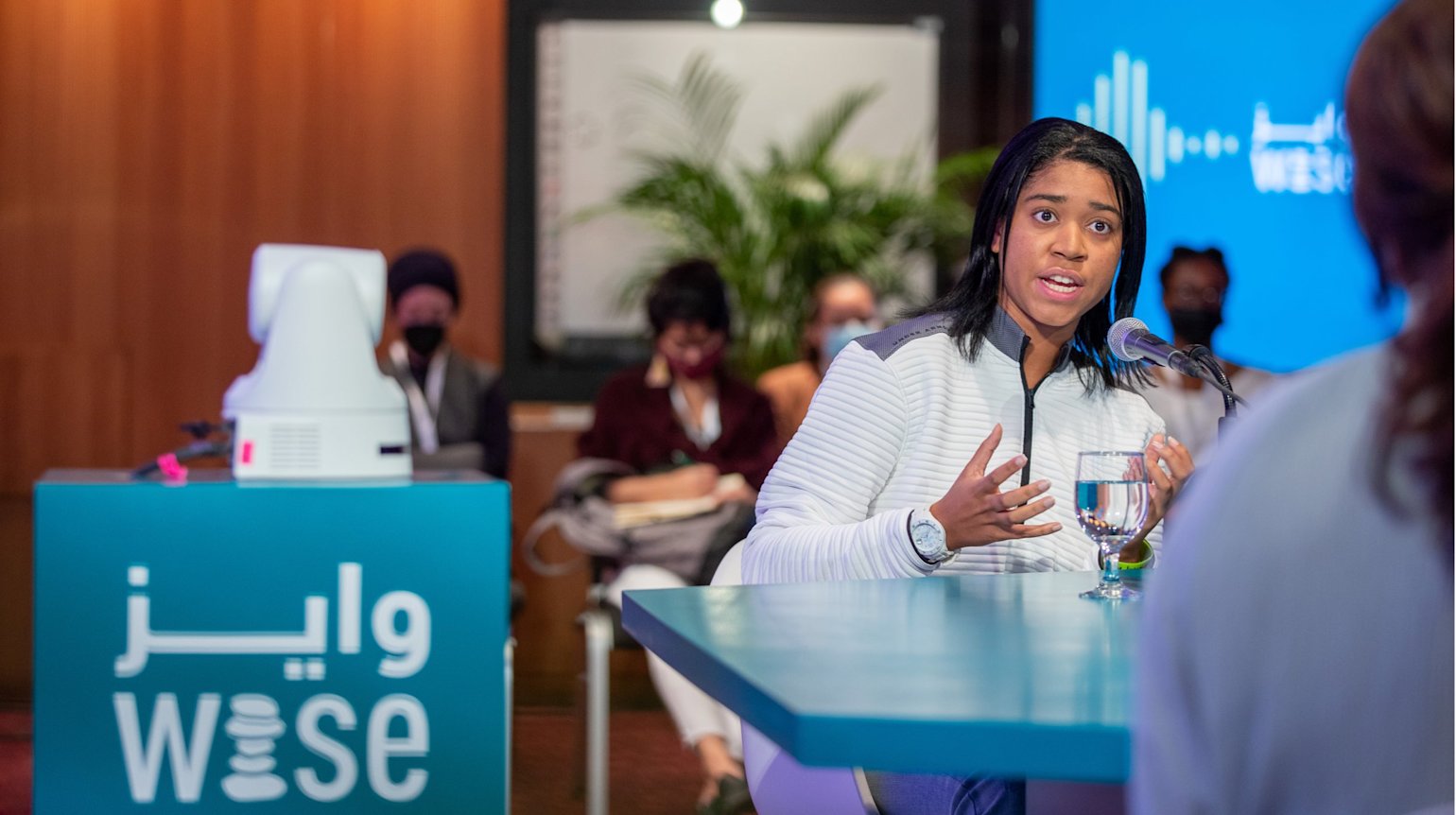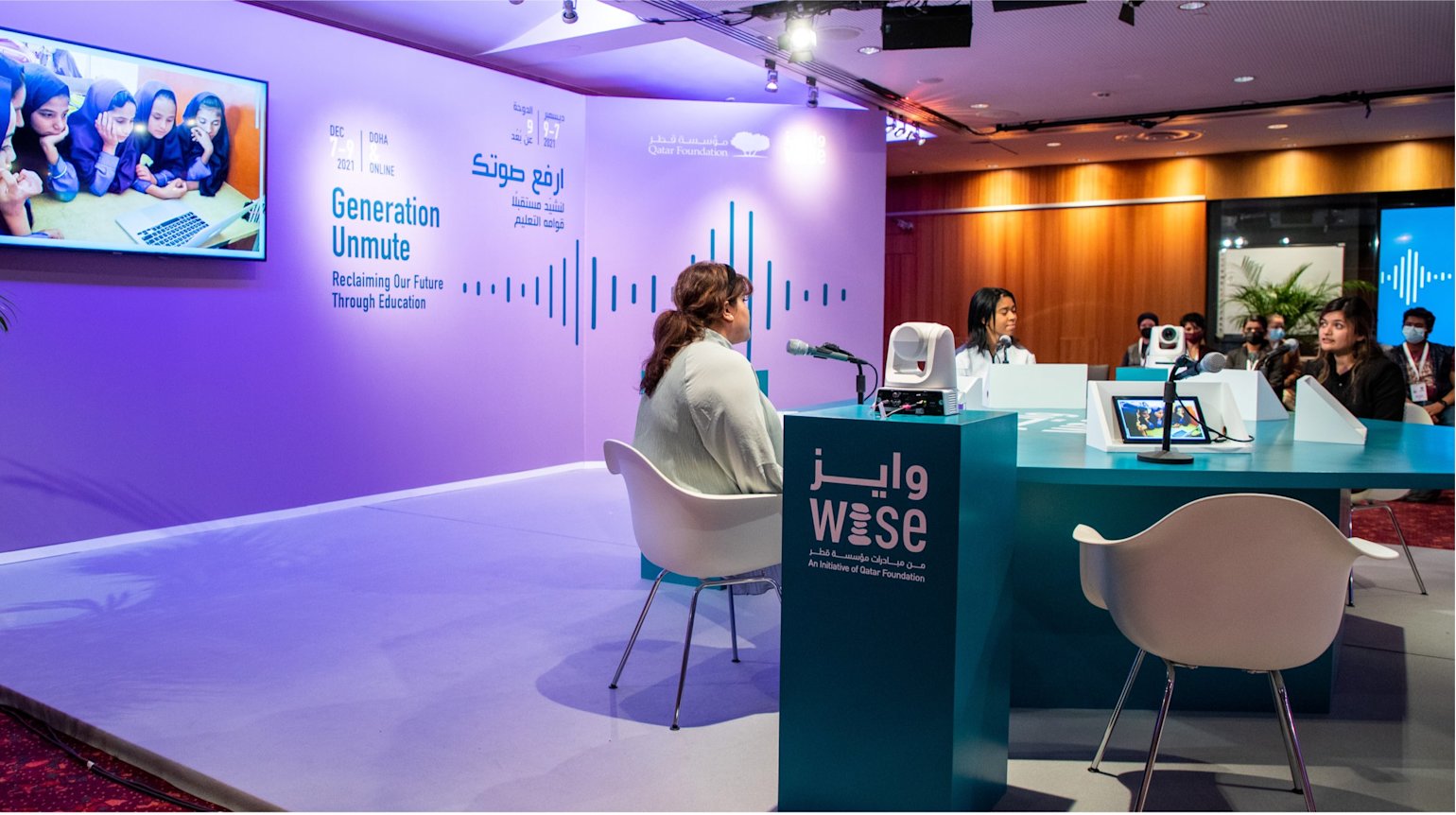Coronavirus (COVID-19) Updates
For the latest COVID-19 information and updates from Qatar Foundation, please visit our Statements page

Discussion held during second day of summit, organized by QF’s global education initiative
The question of how to turn the education of girls in many parts of the world from being something that is simply spoken about into a reality has been tackled at the 2021 WISE Summit.
Speaking at the biennial gathering of educational insight organized by Qatar Foundation’s global education initiative WISE, Sabeena Abbasi, Chief Digital Learning Officer, Orenda Project, highlighted some of the challenges that girls face in acquiring education, specifically in Pakistan, saying: “The issue is highly-quality content, which is not available to them.
We need to realize that, at the end of the day, it’s not about awareness, it’s about providing high-quality education to these girls
“Accessibility is also an issue; there was no secondary school within the reach of these parents. And in certain areas there is a security issue, and parents are not comfortable in sending their daughters to faraway schools. We need to realize that, at the end of the day, it’s not about awareness, it’s about providing high-quality education to these girls, and we have to be very creative about it as well.”

Challenges that girls in many part of the world face in getting an education were highlighted at the 2021 WISE Summit.
Zuriel Oduwole, Film Maker & UN Climate Neutral Now Champion, Co-Founder, DUSUSU Foundation, spoke about the importance of girls driving girls’ education. “Over the last 50 years, whenever you’ve heard about girls’ education, almost always you’re hearing about it from adults – or adults are the ones driving it, not girls,” she said. “This creates an agenda disconnect in many global settings, most of which are dominated by men.
“It would be like if you had a group of teenagers protesting outside of a car manufacturing company, and advocating for the adults that were inside. It’s a huge disconnect. What if teenage girls were on the global stage, and fighting and making a case for girls’ education?”
We still celebrate when a woman takes a position of leadership, but we don’t when a man does that, because a woman taking a leadership position is an anomaly
Abbasi also discussed gender inequality in the workplace, saying: “Currently, in the 21st century, the majority of leadership positions are occupied by men. I think what we need to realize, the harsh truth, is that probably men need to see their position of power and give that space to women.
“We still celebrate when a woman takes a position of leadership, but we don’t when a man does that, because a woman taking a leadership position is an anomaly. We need to take some really harsh steps to reach that goal, which is carving a space for females and recognizing the challenges that females face, specifically if you’re talking about workspaces.

The discussion saw speakers tackle topics such as gender inequality in the workplace and the need for girls to be given the opportunity to advocate for their education.
“Traditionally – and especially in developing countries, for example – it’s expected for a female to raise a family; she is responsible for it. But, at the same time, she’s expected to excel at work, and long hours are considered a good thing. Discrimination starts from there.”
Concluding the discussion, which was moderated by Roshaan Hajira, Alumni Relations Officer, University of Toronto, Zuriel said: “The fact that we’re still having this conversation shows us that there’s still a lot of work that needs to be done.
“But what I’m hoping is that, through these conversations, we’ll have fewer and fewer in the future, because it becomes less of an issue. I’m hoping that we can all take these ideas and actually act on them as well. We have to take what we’ve learned from here and act on it, so we can take girls education from a priority to a reality.”
For more information about the summit and WISE, Please visit the following website

